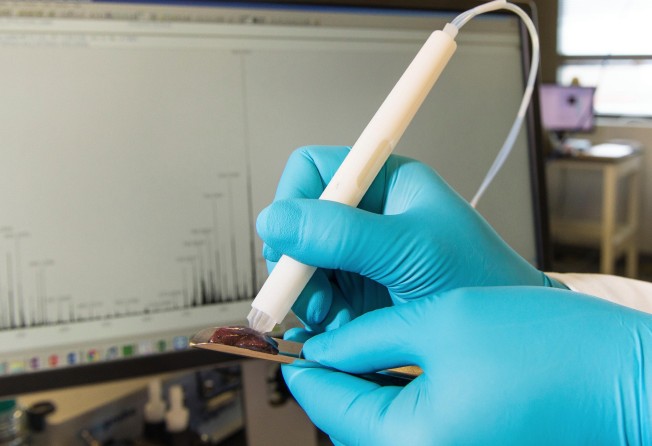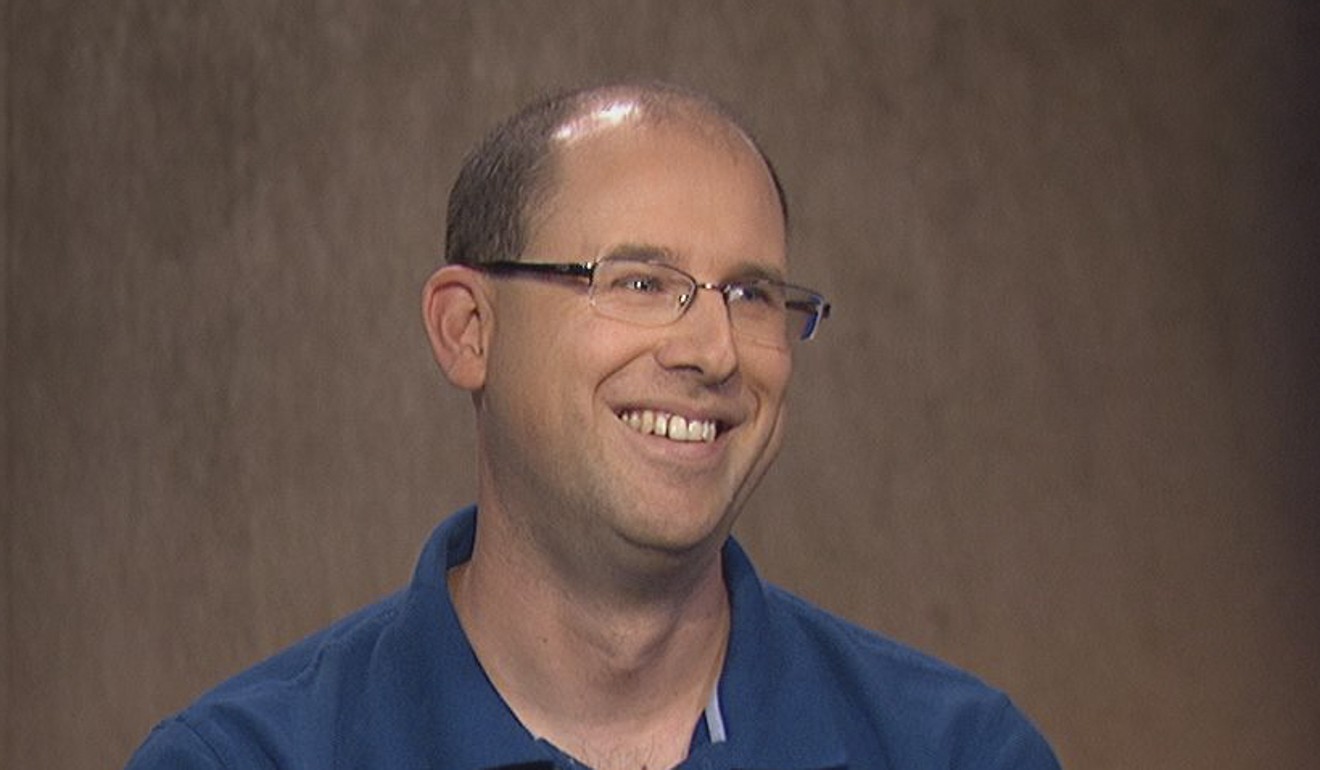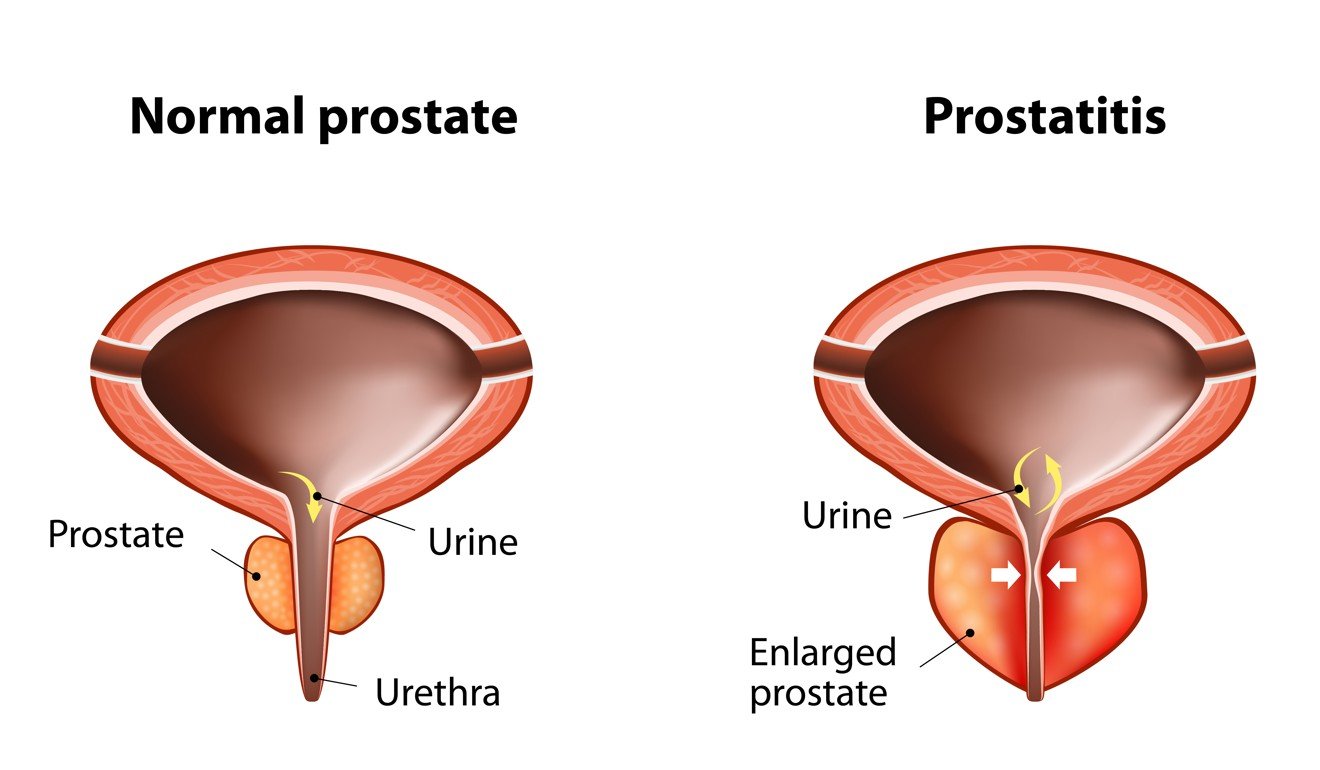
Pencil-sized tool spots cancer cells in seconds, offering safer, more precise tumour removal
MasSpec Pen performs in seconds something that can take days. In other news, taking aspirin to ward off cancer could make disease harder to treat shoud it occur, and new study finds there ARE benefits to prostate cancer screening

One of the biggest worries for patients undergoing cancer surgery is whether surgeons will miss some of the diseased tissue.
That worry could be over with a new, pencil-sized tool developed by scientists and engineers at the University of Texas at Austin, according to a study published this week.
The tool, dubbed the MasSpec Pen, allows surgeons removing a tumour to detect cancerous cells in tissue in seconds, and lets them know immediately if they have found and removed all of the cancer.
Currently it can take days to determine if the surgeons removed everything. What they miss could lead to a return of the cancer or, at least, another operation to further clean up the affected tissues.
The study, published in Science Translational Medicine, says the pen can identify cancerous tissue during surgery in about 10 seconds.
Tests on tissue removed from 253 human cancer patients showed the new tool was “more than 96 per cent accurate”, according to the study.
“Any time we can offer the patient a more precise, quicker or safer operation, that’s something we want to do,” says James Suliburk, head of endocrine surgery at Baylor College of Medicine and a collaborator on the project.
“This technology does all three. It allows us to be much more precise in the tissue we remove and what we leave behind,” he says. AFP

Aspirin a double-edged sword in cancer treatment
Daily aspirin use – known to reduce the risk of colon cancer – could also make the disease harder to treat if it does occur, researchers report.
The new findings based on mathematical modelling, if confirmed statistically and in the lab, would mean that aspirin’s ability to ward off colon cancer may come at an unacceptably high cost.
Taking aspirin regularly “has been shown to reduce the incidence (of) a variety of cancers”, including of the colon, note the authors of a study in the Journal of the Royal Society Interface. But at the same time, the drug may render the cancer “more difficult to manage therapeutically”, they add. “This indicates a potential trade-off.”
A growing body of research has shown that daily micro-doses of aspirin taken for at least five years can slash the risk of cancer later in life.
Rates of prostate, throat and non-small-cell lung cancer all drop off significantly, with the incidence of colon cancer cut by up to half.
Colorectal cancer was the second leading cause of cancer deaths in Hong Kong in 2015, which resulted in a total of 2,073 registered deaths and accounted for 14.5 per cent of all cancer deaths.
Other studies, meanwhile, have tested the impact of aspirin directly on cancer cells in the laboratory, showing that the common painkiller can slow the rate of cell division and boost cell death.
But scientists do not yet understand the mechanism at work, or know whether aspirin might have as-yet-undiscovered effects on cancer spread.

The results could challenge the protocol for aspirin use in cancer prevention.
Aspirin is commonly used in the treatment of cardiovascular diseases in Hong Kong. Roughly half of adults in the US take small doses – 80mg to 325 mg – of aspirin to ward off cardiovascular disease. In Britain the figure is about 40 per cent.
AFP

Prostate cancer screening vindicated for 55- to 70-year-olds
After years of growing doubt about the value of screening men for prostate cancer, a new analysis of existing clinical trial evidence has found that when men between 55 and 70 get the prostate-specific antigen, or PSA, test, the result is lives saved.
In 2009, two clinical trials – one conducted in the US, the other in Europe – drew contradictory conclusions on prostate cancer testing.
The US prostate, lung, colorectal, and ovarian cancer screening trial, found that screening men for prostate cancer does not save lives. The European randomised study of screening for prostate cancer suggested that screening drove down the rate of deaths from prostate cancer by 20 per cent.
Does diet affect prostate cancer and when should men get tested? Some myths about the disease busted
In 2012, a federally funded panel of experts on preventive care concluded there were more risks than benefits to screening American men for prostate cancer with the PSA test. And in April 2017, the US Preventive Services Task Force left the decision up to patients and their doctors. Some men between 55 and 69 years old might well decide to get their PSA checked, say the task force. After hearing the pros and cons, however, others in that age bracket might just as reasonably skip the screening test, the panel concludes.

When men who fit the criteria for screening get the PSA test, the reduction in deaths due to prostate cancer was between 25 per cent and 32 per cent, the new study found.

In Hong Kong, according to the Centre for Health Protection, prostate cancer was the third most common cancer in men and accounted for 11.3 per cent of all new men’s cancer cases in 2014, the latest year for which figures are available. In 2015, a total of 404 men died from this cancer, accounting for 4.8 per cent of male cancer deaths.
Prostate cancer is the most common non-skin cancer found in men in the US, affecting 101.6 out of 100,000 American men, according to the Centres for Disease Control & Prevention.
On its website, the Centre for Health Protection says: “At present, there is insufficient scientific evidence to recommend for or against population-based prostate cancer screening for asymptomatic men in Hong Kong.”
As a result of the growing scepticism about whom to screen for prostate cancer and whether to treat it, more men are skipping the PSA test. And among those who get it and get back a worrisome finding, fewer and fewer are opting for treatment.
TNS